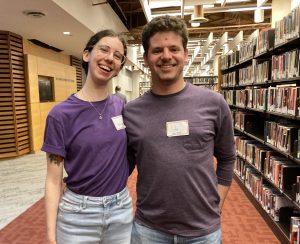One of the many debates in contemporary Israel is whether it’s to be a Jewish state or a state for all its citizens. Those who advocate the former usually want Israel to be Jewish according to Halachah, Jewish law as understood by Orthodoxy, to which non-Orthodox Jews and non-Jews must accommodate themselves.
The advocates of a state for all its citizens want Israel to be a western democracy in which religion and state are totally separate.
A broader and arguably more accurate understanding is to regard Israel as Jewish if it lives up to the teachings and values of Judaism such as justice and equality tolerantly applied to all who live there, irrespective of ethnic origin or religious affiliation.
Having been history’s perennial “slaves in the land of Egypt,” Jews should be sensitive to minorities in their midst. This means, of course, not only accepting different ways of being Jewish, but also treating non-Jews as equals.
READ: MIDEAST PEACE CAN ONLY BE BASED ON MUTUAL UNDERSTANDING
Though Israel is taking small steps towards accepting all Jews – the decision to open a parallel egalitarian section at the Western Wall may be seen as yet another sign – some 20 per cent of its citizens, the Arabs, remain disadvantaged.
Arabs may work with Jews – though often more for Jews – and live as their neighbours, yet there’s relatively little interaction between the two communities. What Palestinians deem to be Israeli occupation of their land and what Israelis experience as terrorist acts against Jews contribute to the enmity and the mutual mistrust.
That was behind the conference held last month at the Shalom Hartman Institute in Jerusalem in memory of its founder, Rabbi David Hartman, who is well known in Canada, where he served a congregation in Montreal for many years. He died three years ago.
As the current president, Rabbi Donniel Hartman – David’s son – reminded us, the institute is an indefatigable champion of openness and equality. Yet hitherto it has been primarily concerned with Jewish pluralism and seems to have neglected the cause of the Arabs in Israel. The conference, whose theme echoed Martin Luther King’s “I have a dream” speech, was a signal of a new and most welcome addition to its agenda.
One of the supporters of this new initiative is none other than Israeli President Reuven Rivlin. Because he’s said to be in favour of fully integrating Palestinians into Israeli society and apparently opposed to the so-called two-state solution, he’s a staunch champion of equal rights for all Arabs in Israel. We were told that he would have attended the conference had he been in the country, but as he was abroad at the time, he sent a warm and supportive message arguing for meaningful coexistence.
Such coexistence, I heard an Arab speaker say at the conference, has so far been mainly the coexistence of horse and rider in which the Arab is the horse. At the end of the day, the horse may have done the hard work, but is only given hay to eat whereas the rider gets a steak for dinner. The inequality is there for all to see.
READ: INSTEAD OF ISRAEL APARTHEID WEEK, UNIVERSITIES HOST MIDDLE EAST WEEK
The Arab speakers I heard were among relatively few who have made it in Israel and now hold important positions in the country, but they’re only a very small minority. Most belong to the disadvantaged and are made to feel as aliens or worse in the land where their ancestors have lived long before any of the families of their Jewish neighbours had arrived. One of the aims of Arabs and Jews now should be not to let their children inherit the disputes and inequality.
The conference began only hours after another terrible terrorist attack that cost the life of young Israeli soldier, injured badly her colleague and resulted in the death of the three Palestinian assailants. But this gathering wasn’t about that. It was about justice for the indigenous Arab population of Israel. It’s a necessary beginning.






